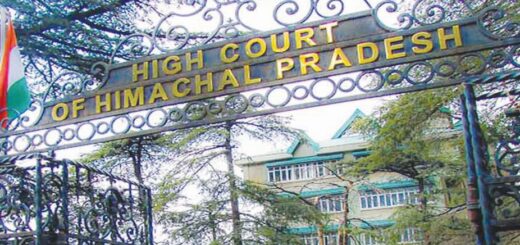The Supreme Court stated that hate speech is distinct and should not be compared to incorrect statements or false claims while rejecting a public interest litigation that asked for rules on hate speech.

The Supreme Court has rejected a Public Interest Litigation (PIL) filed under Article 32 that called for immediate action against a rise in inflammatory speeches. The petition claimed these speeches threaten state security, foster divisive ideas, and undermine national unity. It also requested the court to issue guidelines to control and prevent speeches that could harm the state’s sovereignty and security. The Hindu Sena Samiti, which filed the petition, argued that inflammatory remarks, mainly from political leaders, have repeatedly incited calls for secession and armed rebellion, posing a serious risk to the country’s integrity and social peace.
Chief Justice Sanjiv Khanna and Justice Sanjay Kumar stated, “We are not inclined to consider this writ petition under Article 32 of the Constitution of India, which refers to alleged references… Additionally, there is a distinction between hate speech and… the definition of hate speech is specific and cannot be confused with incorrect statements or false claims. If the petitioner has any grievances, they should pursue them according to the law. We do not make any comments on this matter.” During the hearing, Advocate Kunwar Aditya Singh and Advocate Swatantra Rai represented the petitioner. Singh began by stating, “This is a writ petition in the form of a PIL. We are requesting guidelines for…”.
The Chief Justice of India (CJI) mentioned that the matter is under review. He noted that the issue of hate speech is being addressed. CJI Khanna added that they have not issued contempt notices in most cases they are handling, except for a couple of pending applications. Singh pointed out that the case of Shaheen Abdullah is still open. The Bench responded that they are not issuing any notice in that case. A Public Interest Litigation (PIL) submitted by AoR Vishal Arun Mishra brought attention to recent controversial remarks made by political figures. One example is a speech by Sajjan Singh Verma, a former minister, on August 8, 2024, in Indore, Madhya Pradesh, where he allegedly warned of a possible uprising similar to protests in Sri Lanka and Bangladesh, suggesting that public dissatisfaction with national policies could lead to attacks on government buildings. Additionally, Rakesh Tikait, the National Spokesperson for the Bharatiya Kisan Union (BKU), spoke in Meerut, Uttar Pradesh, on August 21, 2024, referencing farmers’ protests and implying that past demonstrations could turn violent, threatening public safety.
The petitioners pointed out the ongoing failure of authorities to manage such statements and cited Supreme Court rulings in Shaheen Abdulla v. Union of India and Ashwini Kumar Upadhyay v. Union of India. These rulings called for immediate action under Indian Penal Code (IPC) Sections 153A, 153B, and 505 against inflammatory speech that could incite public unrest. The petition argued that these directives were either overlooked or not enforced adequately, calling for a stricter stance against provocative speech, regardless of the speaker’s political background, to maintain the secular character of the state.
The petition highlighted the importance of mandatory educational programs and orientation sessions for political leaders to raise awareness about legal limits on public speech. The supporters argued that this training would clarify the responsibilities that come with freedom of speech and expression, stressing the need to balance this freedom with the necessity of maintaining public order and national security.
Given the increasing number of provocative remarks that threaten state security, it is crucial to implement comprehensive training programs, along with seminars and conferences, to educate representatives and members from all political parties and organizations involved in political activities. These initiatives should focus on raising awareness about the risks of statements that could harm the state’s interests and security, as they may lead to violence and social unrest. By informing public figures about the legal rules surrounding provocative statements and their negative effects on national integrity, we can create more knowledgeable political groups that contribute to social order and public peace. Such training should encourage discussions about the responsibilities tied to political engagement, promoting a culture of respect and tolerance, the PIL stated. The petitioners called on the Court to enforce proactive measures against those who violate previous directives, warning that unchecked inflammatory speech could lead to social unrest and damage the country’s social cohesion. They also stressed the need for equal legal treatment, pointing out the State’s firm actions in similar cases involving civilians and journalists, in contrast to the leniency shown towards political figures who have incited unrest without facing similar repercussions.
The PIL requested the following actions:
(1) Require respondents to create rules or guidelines to control and prevent speeches that threaten the nation’s sovereignty and security;
(2) Instruct respondents to take legal action against speakers and organizations that engage in activities harmful to the state’s sovereignty and security, posing a threat to India’s unity;
(3) Order a thorough, unbiased investigation into speeches that risk state security, to be conducted within a set timeframe and overseen by this Hon’ble Court;
(4) Direct appropriate measures against respondents to start contempt proceedings under the Contempt of Courts Act 1971;
(5) Mandate a training program for politicians and members of political organizations;
(6) Require an explanation regarding statements about secession similar to those made about Sri Lanka and Bangladesh;
(7) Request Rakesh Tikait to file an affidavit promising not to speak at or participate in the farmers’ protest.
Cause Title: Hindu Sena Samiti & Anr. v. Union of India & Ors. [W.P. (Crl.) No. 437/2024; Diary No. 47037/2024]









